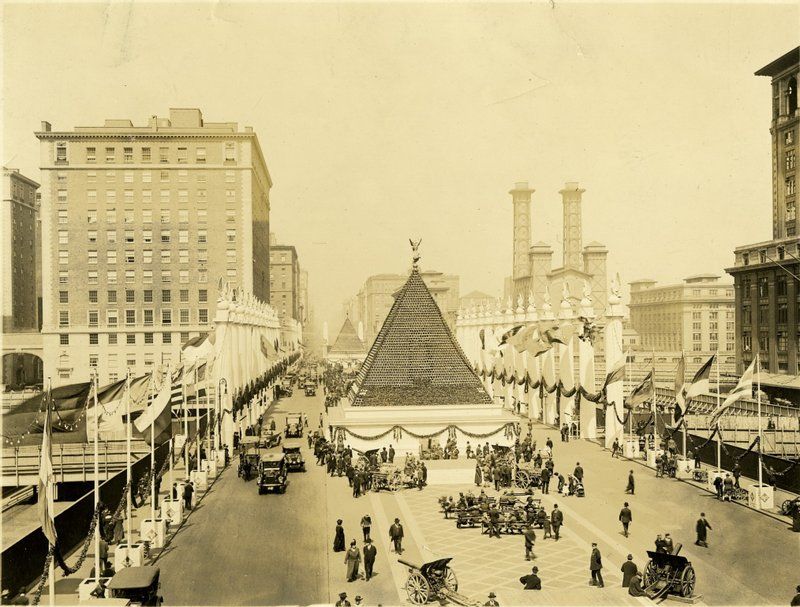Last Chance to Catch NYC's Holiday Notalgia Train
We met the voices of the NYC subway on our nostalgia ride this weekend!


Five avenues west of the United Nations is Park Avenue, home to Grand Central Terminal and a slew of corporate headquarters. For one week at the end of April 1919, the stretch between 45th and 50th streets was the home of “Victory Way.” Amongst the fanfare, which included battle re-enactments, simulated aerial displays, German war artillery, a parade, and a panoramic photo of World War I, were two enormous pyramids made of German army helmets. 85,000 German army helmets, to be exact.
After the Allies won the First World War, American soldiers captured the helmets in a supply depot in Coblenz, Germany and brought them back to the States. Then the American government displayed them outside Grand Central Terminal to convince New Yorkers flush with pride to buy war bonds, known as the “Victory Loan” for $1000 each. German helmets were also awarded as prizes to government workers who successfully sold the bonds. According to the book When Wall Street Met Main Street by Julia C. Ott, “the proceeds of the four Liberty Loans, the Victory Loan, and the additional War Savings program paid for roughly 60 percent of the costs of the Great War.”

Photo from Smithsonian Institution National Museum of American History, Archives Center Grand Central Terminal Collection, in public domain.
Speakers at the parade, which included processions from twenty-nine nationalities, included the daughter of President Woodrow Wilson, Eleanor Wilson McAdoo who was married to Treasury Secretary William G. McAdoo, who also gave a speech. Ott writes that this event was notable not only because of the celebration by “citizen-investors” on their return on investment from the war, but also “most remarkable was to witness how the wartime state and fellow citizen-investors paid homage to groups otherwise marginalized in political and civic life…admitting workers, women, and recent immigrants as equals in the new national imaginary.”
Next, check out 10 Traces of World War I You Can Still See in NYC.
Subscribe to our newsletter